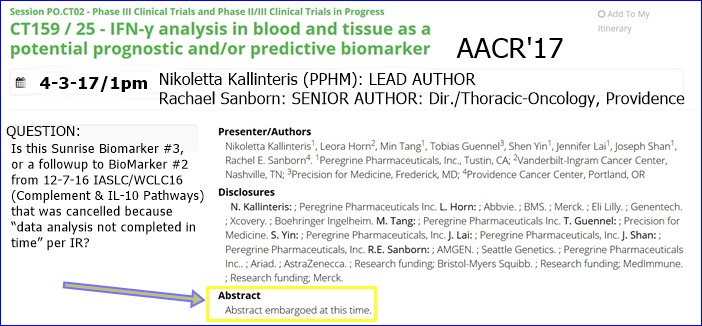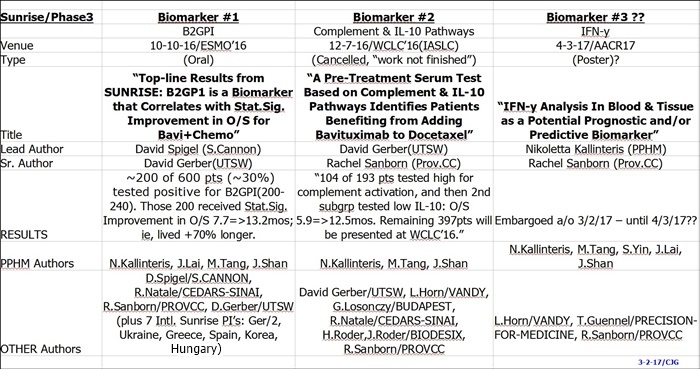An off target toxicity and Cytokine Storm message
I kept hearing about some storm of sorts that can build up and cause more havoc than one would want and going thru a separation then complete divorce can be presented as good if you are given the beach house and the spouse gets the beaten down house way out in the middle of no where
As for Avid Bioservices - the late Peregrine Pharmaceuticals that had MANY collaborations are a distant past thought with ex CEO Steve King not even around to concur with present Avid Bio BOD that companies like Humanigen were indeed one of the collaborations and should make any analyst start to wonder
You all like Mr Chappell at Humanigen and you all like Brian Sheehy ?
Imagine a month after a divorce and after the storm passes, skies clear and you sitting out looking at the ocean on that nice beachfront property as Ex partner has all types of visitors asking about paying multiples $$$ for the house in the middle of no where that somehow someone used special optics to determine the house sits on a gold reserve.
Sometimes it is best to ask the important questions before departing with any asset and ask for all who had access to that asset.
Humanigen Elects Dr. Dale Chappell to Board of Directors
February 08, 2021 07:00 AM Eastern Standard Time
BURLINGAME, Calif.--(BUSINESS WIRE)--Humanigen, Inc. (NASDAQ:HGEN) (“Humanigen”), a clinical stage biopharmaceutical company focused on preventing and treating an immune hyper-response called cytokine storm with its lead drug candidate lenzilumab™, today announced that the Company’s Board of Directors (the “Board”) has elected Dr. Dale Chappell, the Company’s chief scientific officer, to serve as a director of the Company, effective February 5, 2021. Dr. Chappell will continue to serve as the Company’s chief scientific officer.






